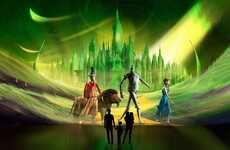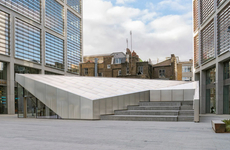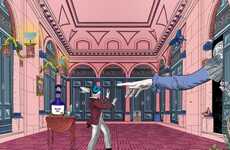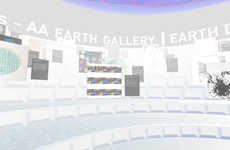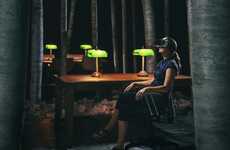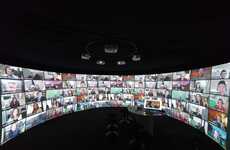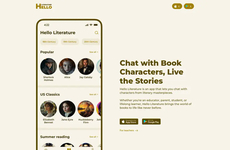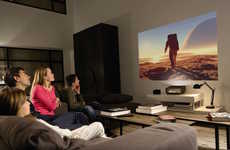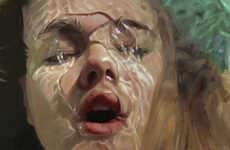
The 'I-CAVE' Project Brings Shakespeare to Life with Virtual Reality
Katherine Pendrill — February 3, 2016 — Tech
References: icave.fiu.edu & coolhunting
'I-CAVE' is a new project launched by a group of students from Florida International University, which brings Shakespeare into the 21st century. While the works of Shakespeare are available to read, the experience is not the same as witnessing the performances as they were during the poet's time. Now VR technology is being used to recreate those experiences with extreme accuracy.
The I-CAVE project consists of a virtual world that replicates the space, atmosphere and performances as they were in 1598. The experience transports individuals back to this time with an interactive digital narrative that ultimately brings Shakespeare’s works to life. The students managed to recreate the Globe Theater experience by collaborating with individuals from the architecture, computer science and theater departments.
The technology ultimately gives teachers a new tool for bringing literature to life in the classroom.
The I-CAVE project consists of a virtual world that replicates the space, atmosphere and performances as they were in 1598. The experience transports individuals back to this time with an interactive digital narrative that ultimately brings Shakespeare’s works to life. The students managed to recreate the Globe Theater experience by collaborating with individuals from the architecture, computer science and theater departments.
The technology ultimately gives teachers a new tool for bringing literature to life in the classroom.
Trend Themes
1. Virtual Reality Education - The use of VR technology in the classroom offers new ways to bring literature to life and enhance the learning experience.
2. Historical Recreation - The recreation of historical events and places through VR technology can provide immersive and accurate experiences for education, entertainment, and tourism.
3. Cross-disciplinary Collaboration - Collaboration between different departments, such as architecture, computer science and theatre, to develop VR projects can produce innovative solutions for industries beyond education and entertainment.
Industry Implications
1. Education - Virtual reality can be used in the classroom setting to enhance learning experiences.
2. Entertainment - Recreating historical events and places through VR technology provides new entertainment experiences for audiences.
3. Architecture - Cross-disciplinary collaboration between architecture and technology departments can lead to innovative ways for architects to present and showcase building designs.
4.6
Score
Popularity
Activity
Freshness

